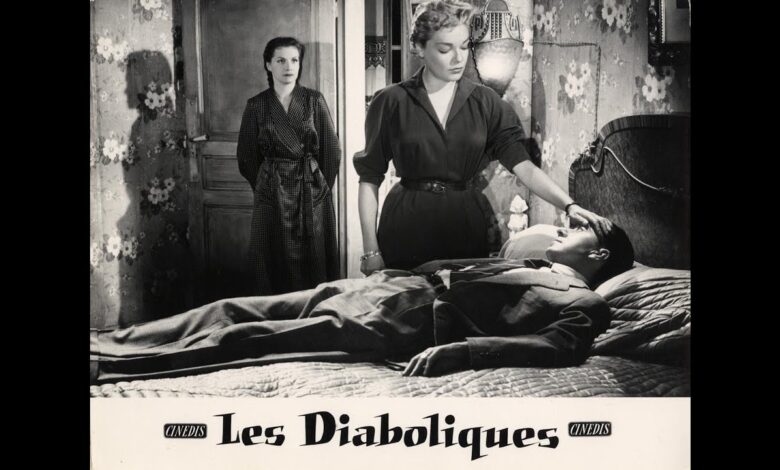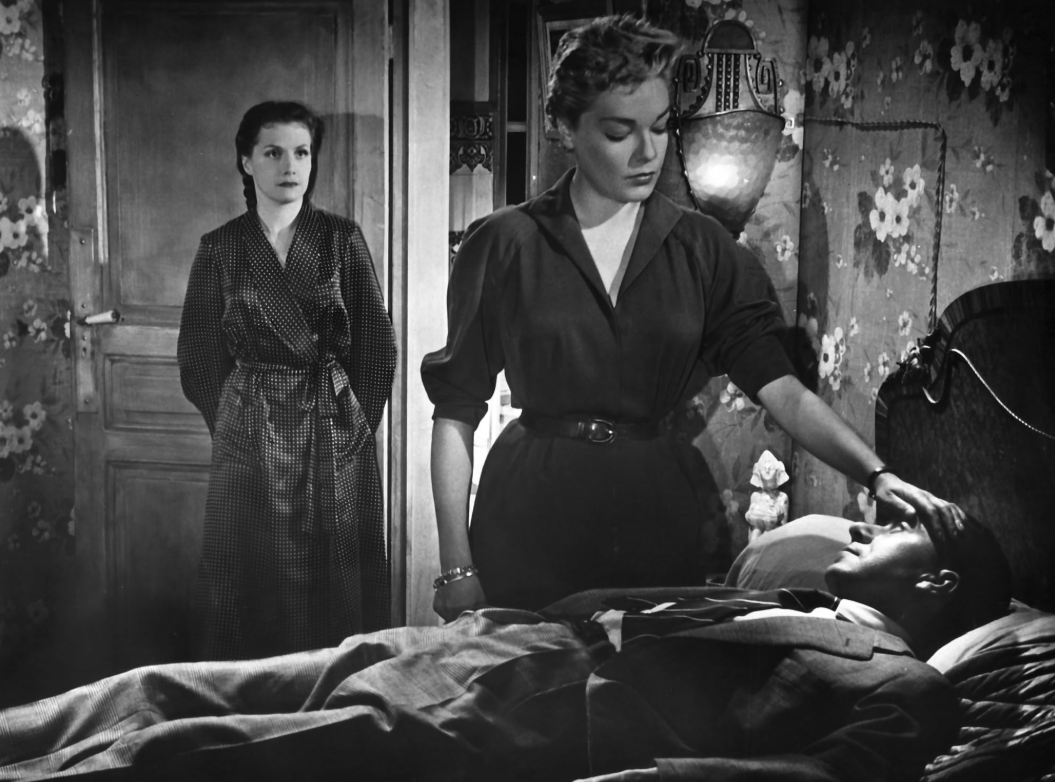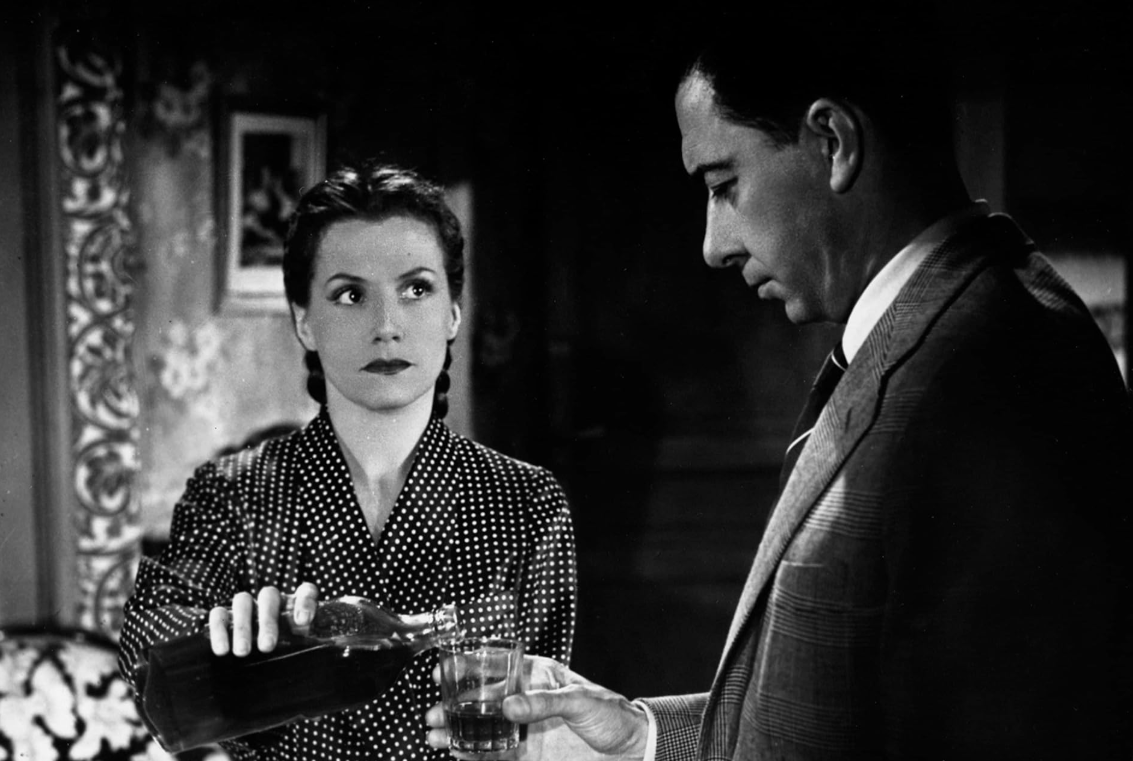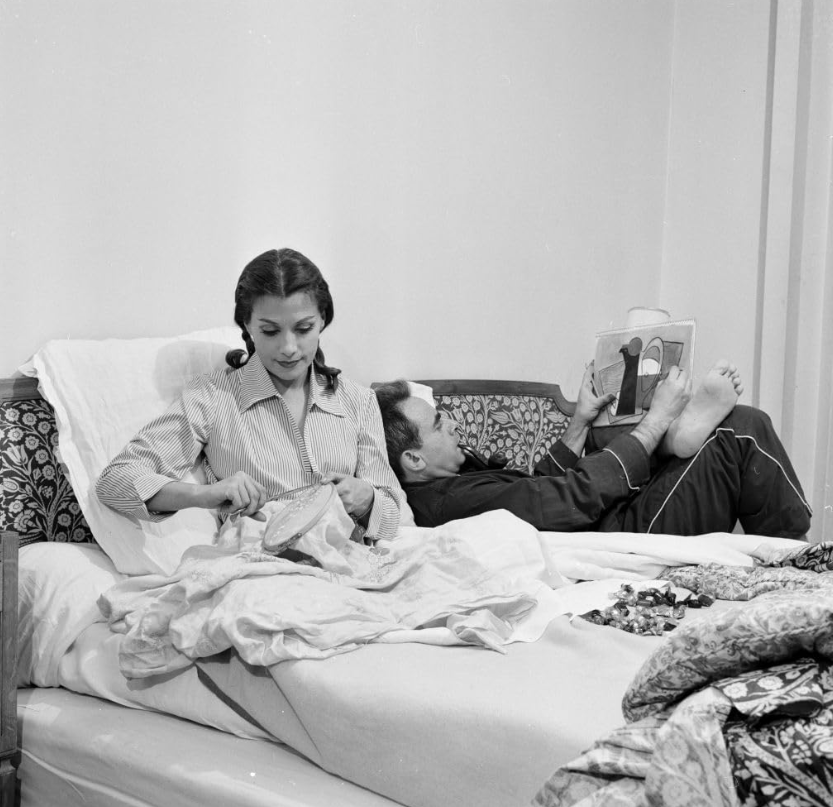Diabolique (1955)

Georges Clouzot, is a masterclass in psychological suspense and one of the most influential thrillers in cinematic history. Set in a dilapidated French boarding school, the film revolves around a twisted love triangle involving Michel Delassalle, the cruel headmaster; Christina, his frail and devoutly Catholic wife; and Nicole, his strong-willed mistress. Despite the odd arrangement, Christina and Nicole form an unlikely alliance—bound by shared suffering—and conspire to murder Michel.

The plan is meticulous: lure Michel to Nicole’s home, drug him, and drown him in a bathtub. After executing the murder, they dump the body in the school’s unused swimming pool, expecting it to be discovered and classified as accidental. But days pass and the pool is drained—no body is found. Panic and paranoia take root. Christina, already weakened by heart trouble and guilt, begins to unravel as mysterious sightings of Michel and strange occurrences at the school mount.

Plot Summary
Set in a dilapidated boarding school for boys, the film follows Christina (Véra Clouzot), the frail and emotionally fragile wife of Michel Delassalle (Paul Meurisse), the cruel headmaster. Christina and Michel’s mistress, Nicole (Simone Signoret), form an unlikely alliance, bound by their shared hatred for Michel’s abuse.
Together, they plot the perfect murder. But after executing their plan and disposing of Michel’s body, something strange happens—his body disappears, and eerie signs begin to suggest he may still be alive. As paranoia sets in and clues become more sinister, Christina and Nicole find themselves in a nightmare of psychological torment and supernatural suspicion.

🎥 Style & Direction
Henri-Georges Clouzot’s direction is taut and precise, building suspense through slow pacing and claustrophobic framing. The film avoids overt violence, relying instead on atmosphere, suggestion, and the viewer’s imagination. Its black-and-white cinematography heightens the sense of dread and moral ambiguity.
Clouzot was inspired by Alfred Hitchcock, and Diabolique in turn influenced Hitchcock’s Psycho and millions of thrillers that followed.

🏆 Legacy & Influence
Diabolique was a critical and commercial success and remains a cornerstone of psychological horror. It has influenced generations of filmmakers, from Roman Polanski to Brian De Palma. The film’s famous ending prompted a warning in the credits: “Don’t be diabolical! Don’t spoil the ending for your friends!”—a tactic later echoed by Hitchcock.
In 1996, it was remade in Hollywood starring Sharon Stone and Isabelle Adjani, although the original remains far superior in atmosphere and storytelling.

Clouzot masterfully builds tension through silence, shadow, and suggestion, crafting a film that Hitchcock himself reportedly tried to option before Clouzot acquired it. Based on the novel She Who Was No More by Boileau-Narcejac, the story culminates in a legendary twist that redefined the genre. Without revealing it, the climax hinges on deception, perception, and psychological manipulation, paving the way for future thrillers like Psycho and The Sixth Sense.
Diabolique excels not just through plot but atmosphere—dark, damp, and oppressive. Its black-and-white cinematography enhances the bleak, noirish tone. Performances by Simone Signoret (Nicole) and Véra Clouzot (Christina) are compelling, contrasting strength and fragility in haunting ways.
More than a murder mystery, Diabolique is a meditation on guilt, control, and the fragility of the human psyche. Its final moments still resonate, and its influence echoes across decades of psychological thrillers.





